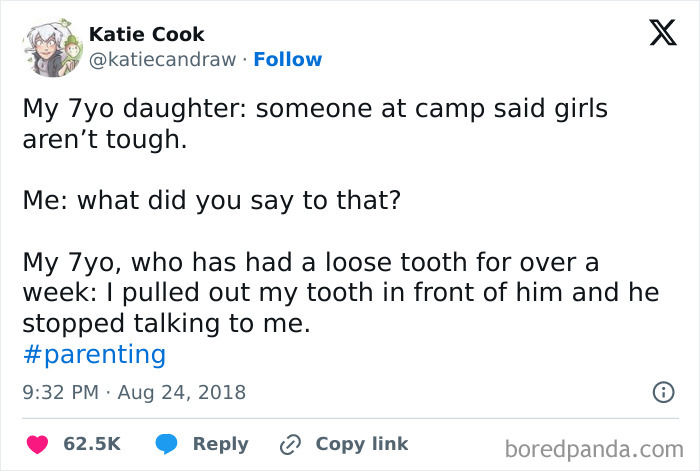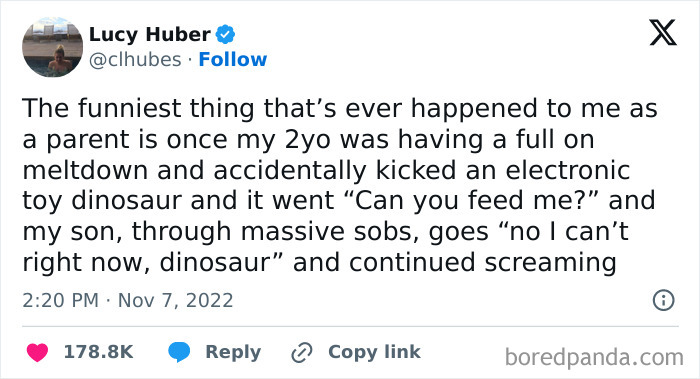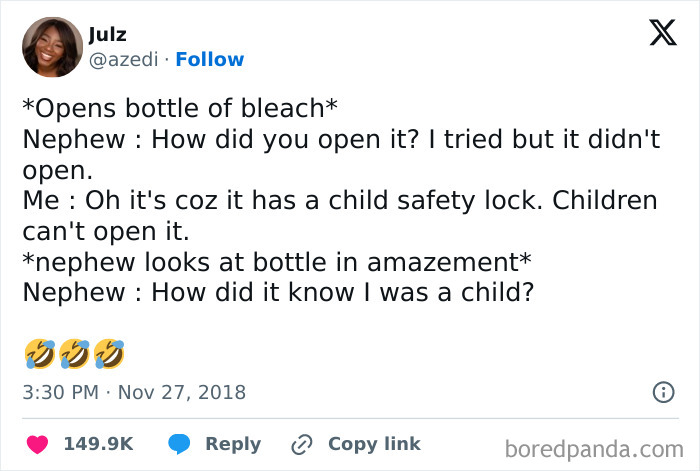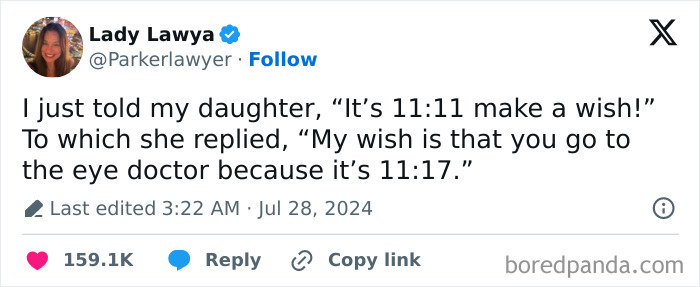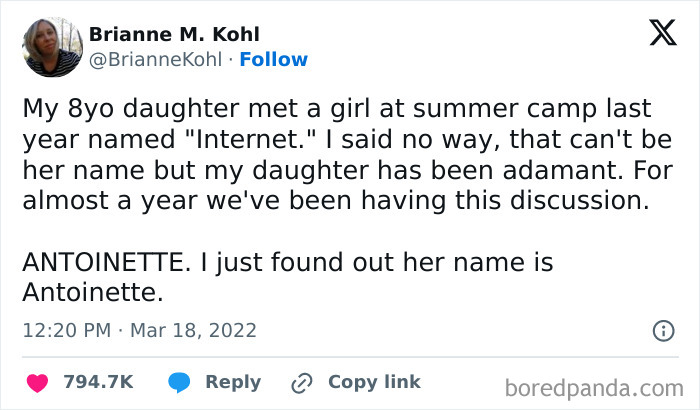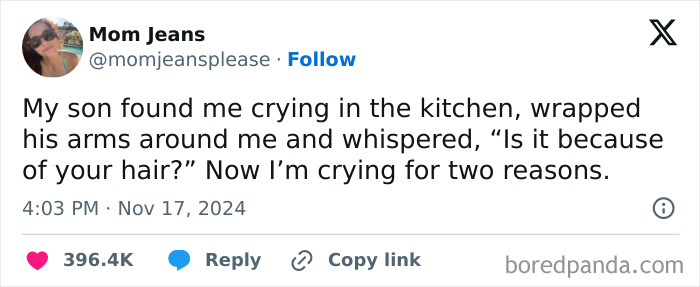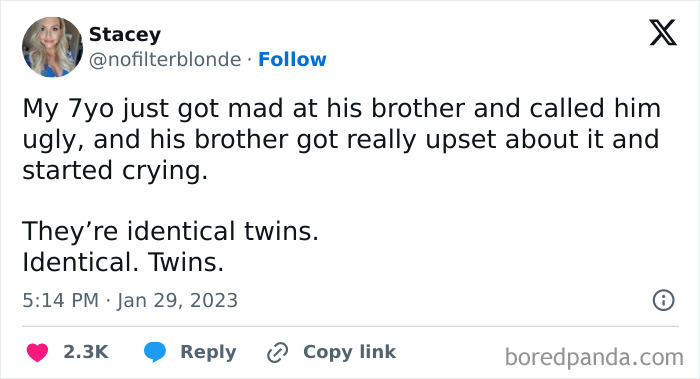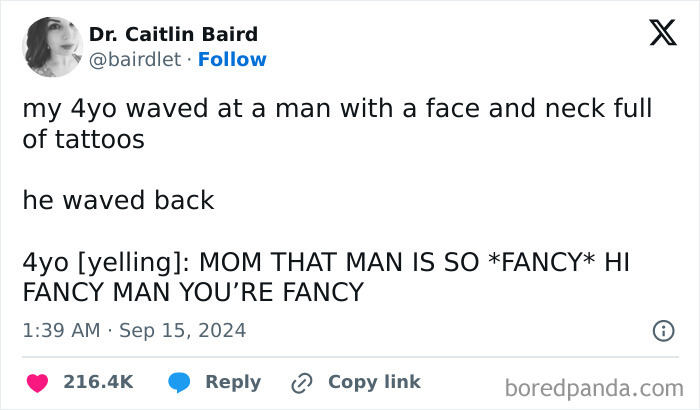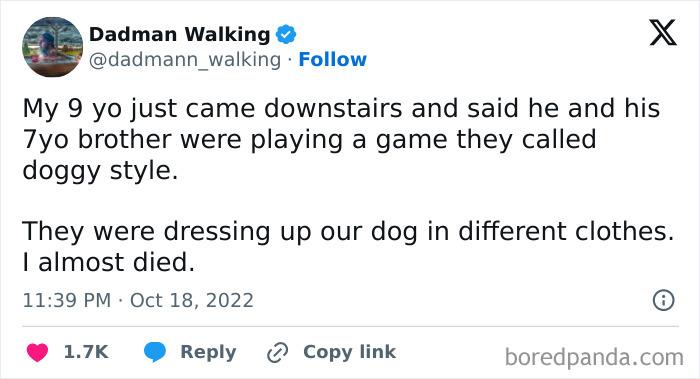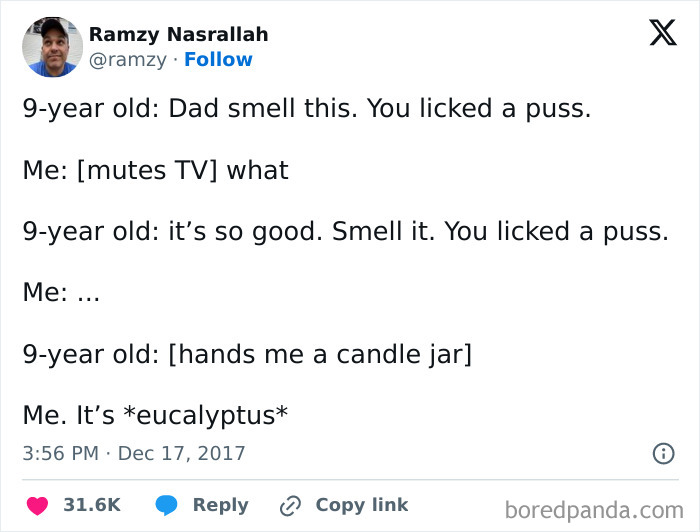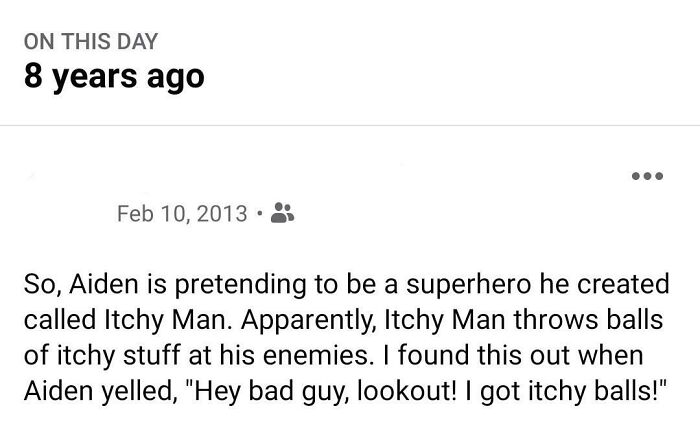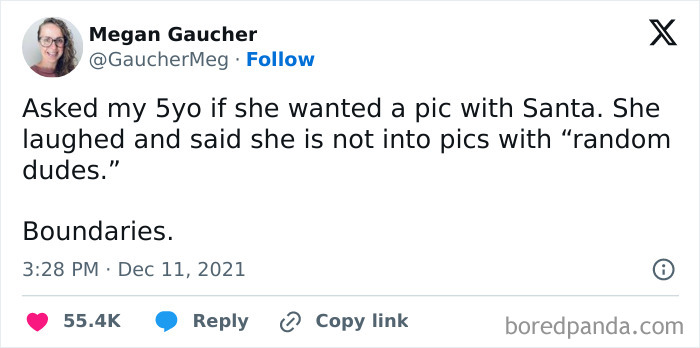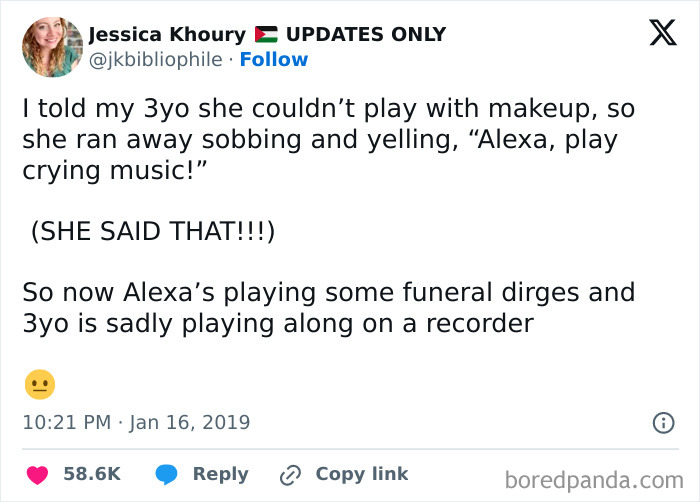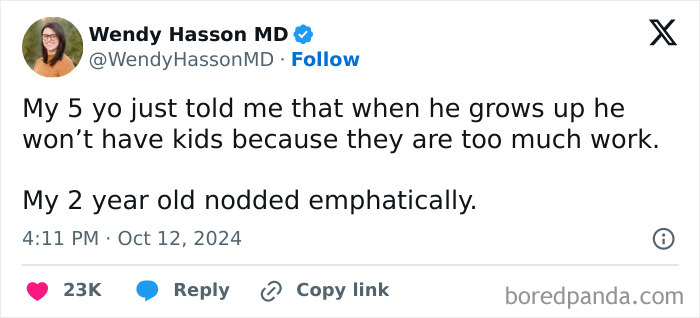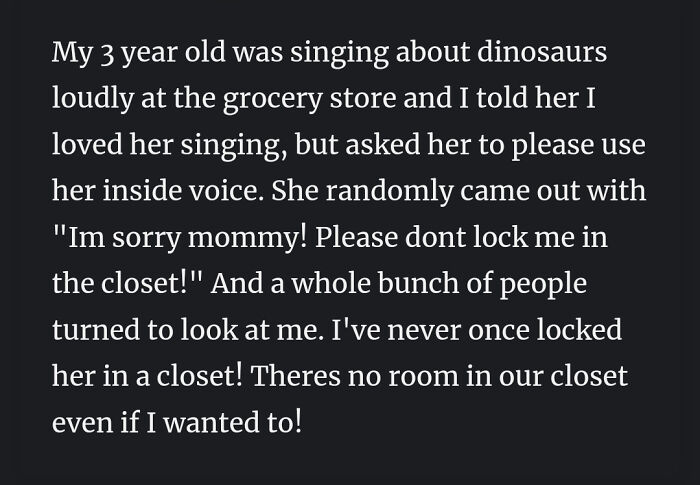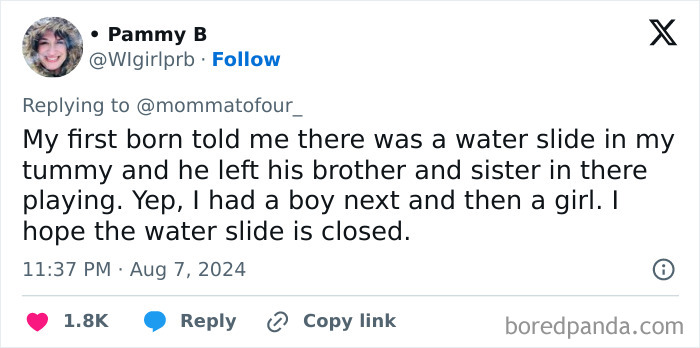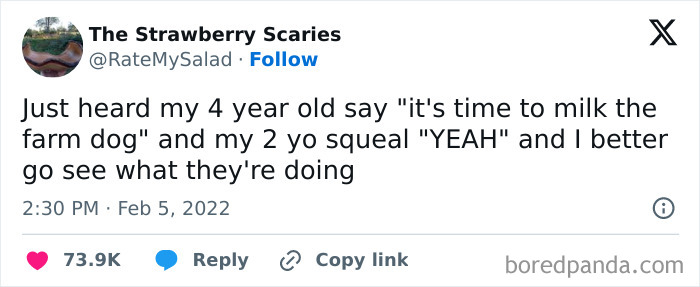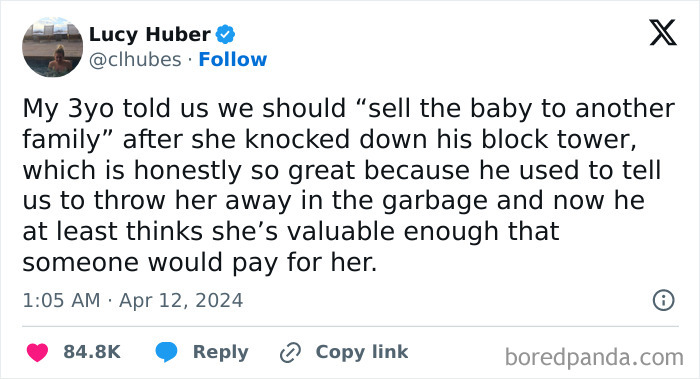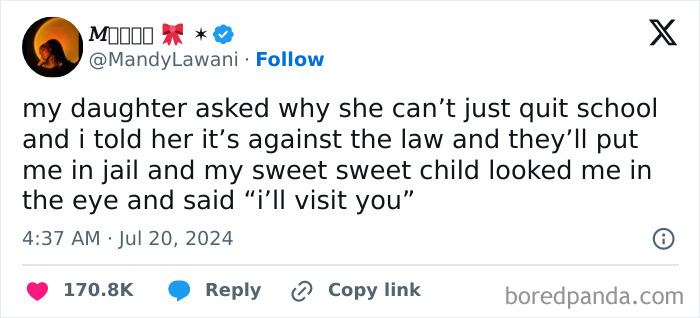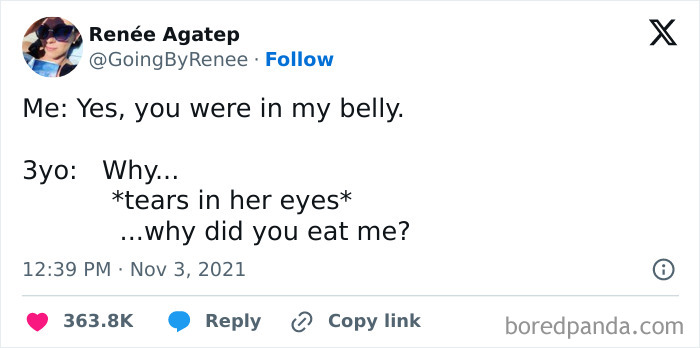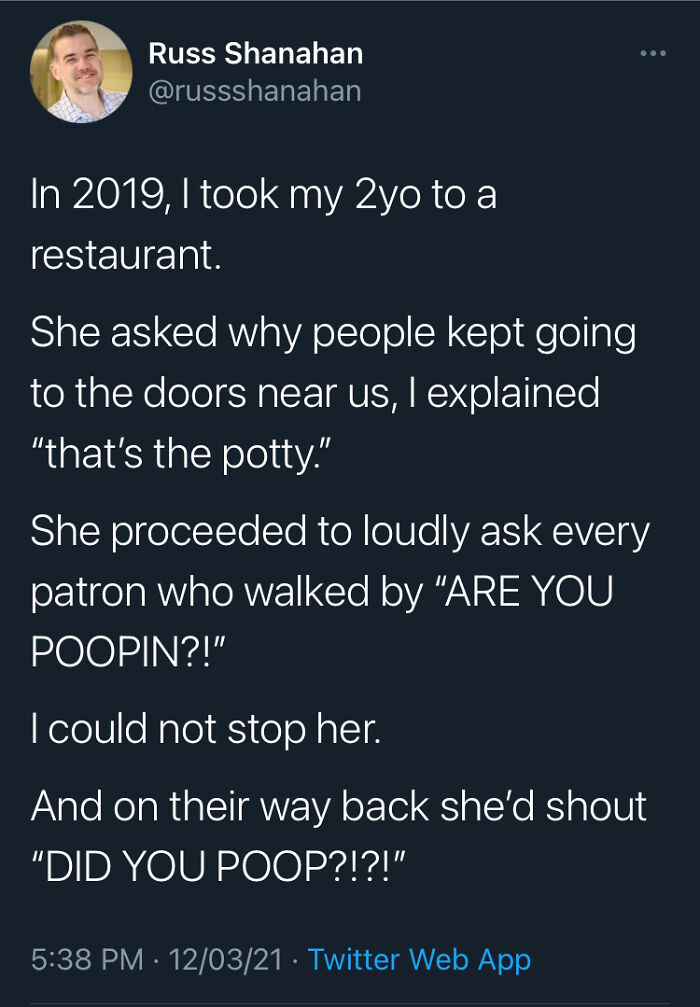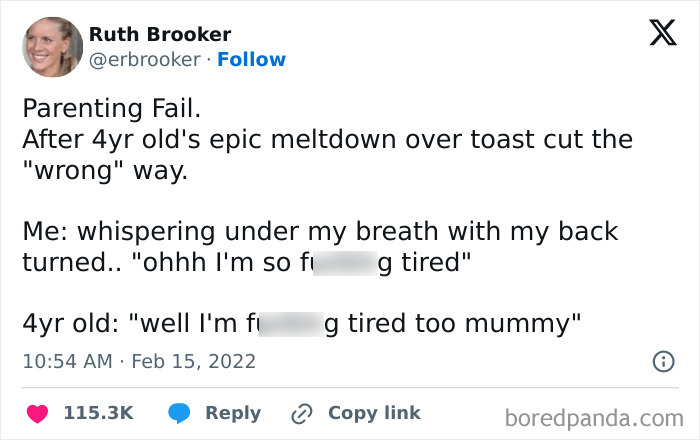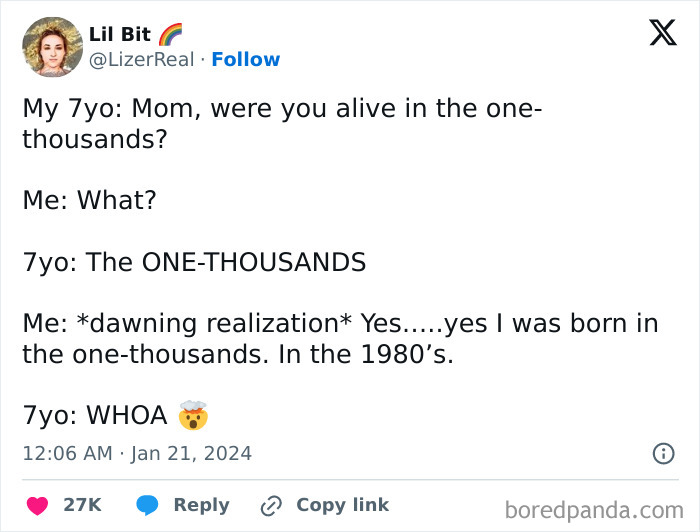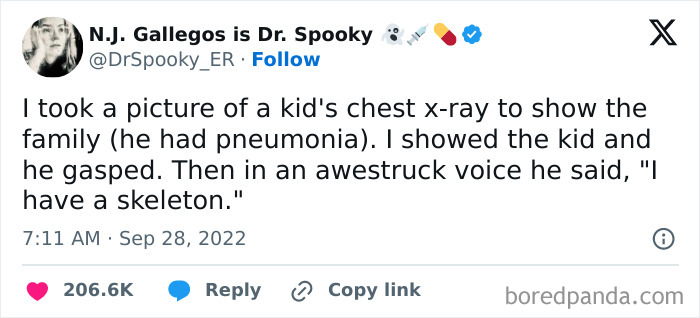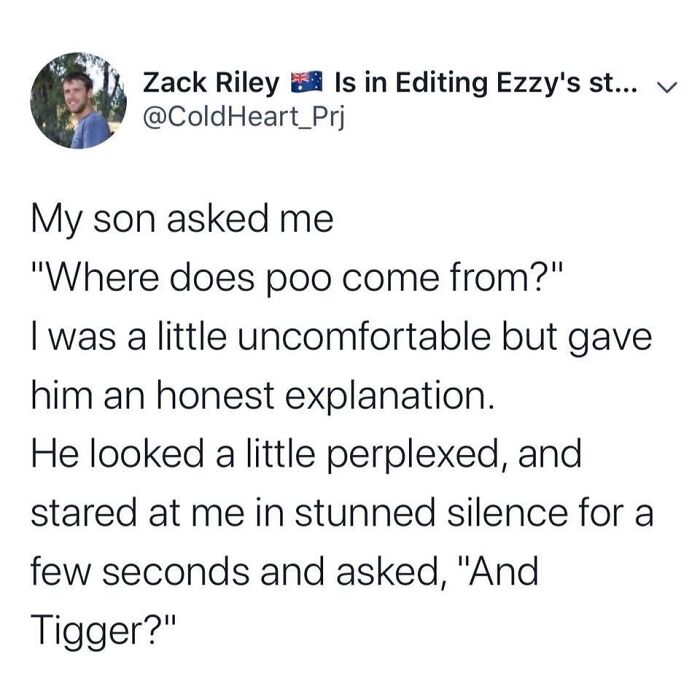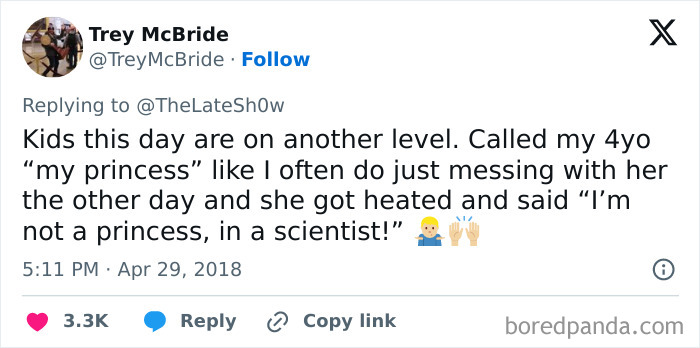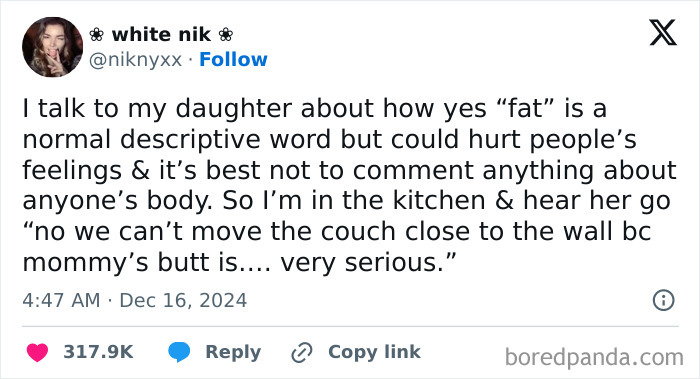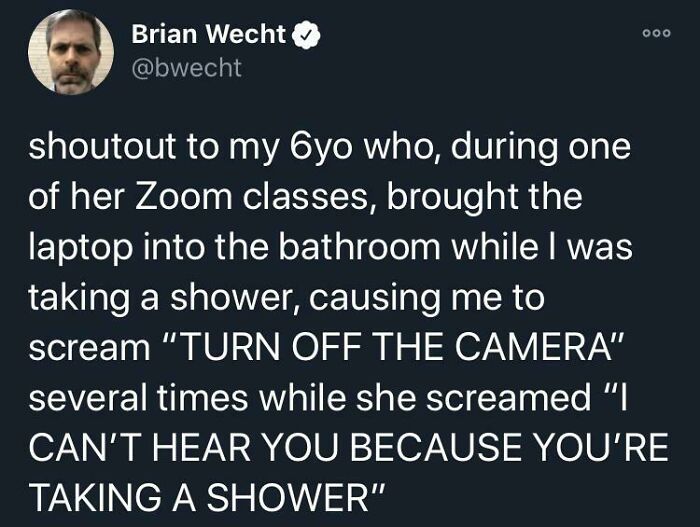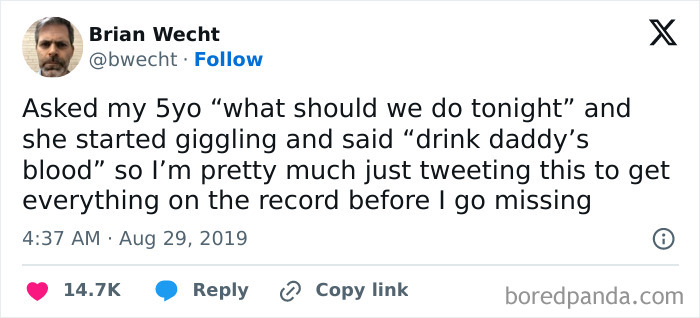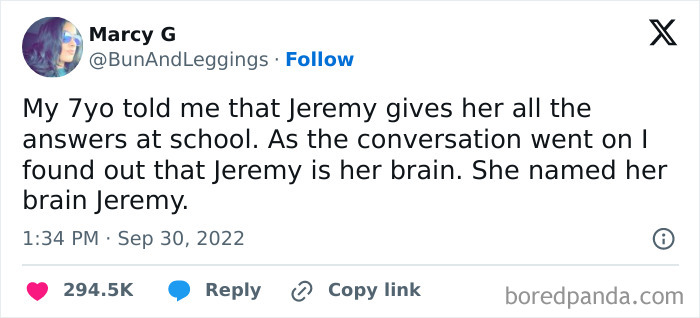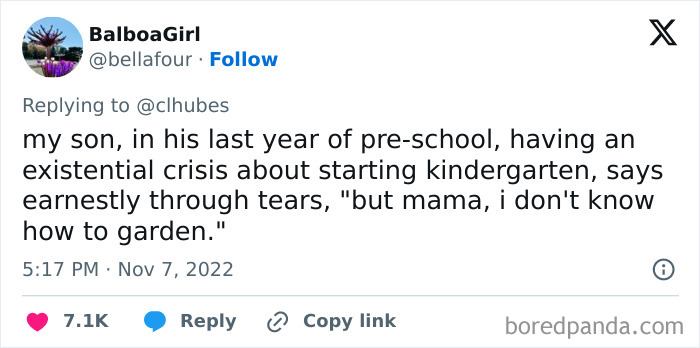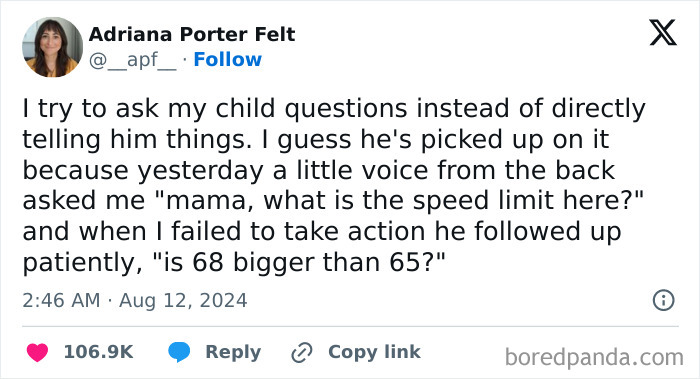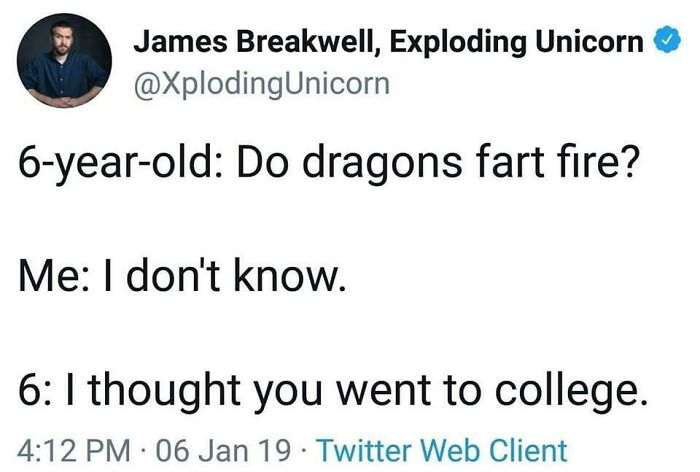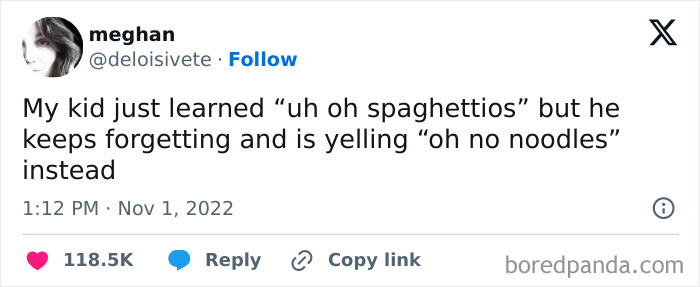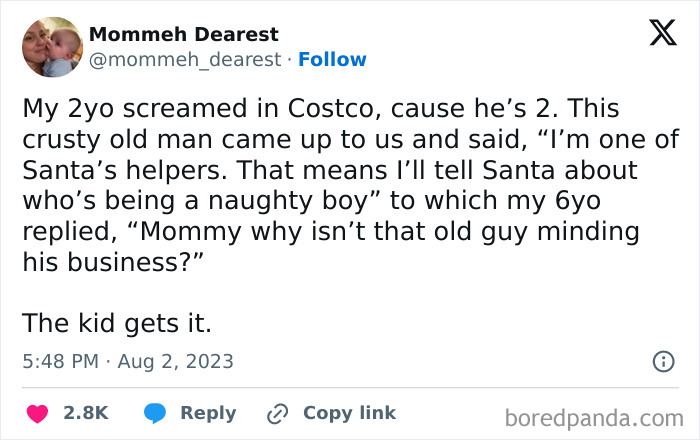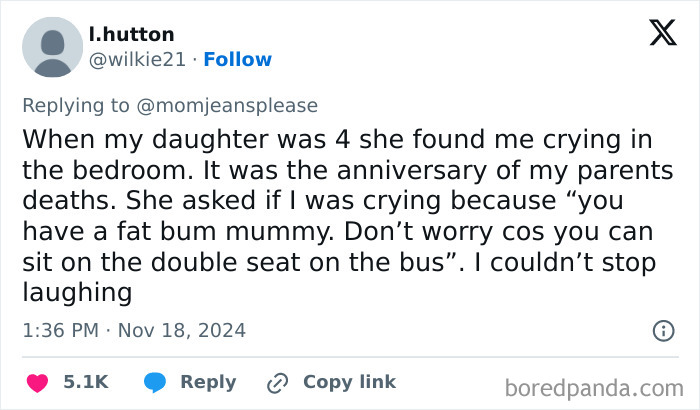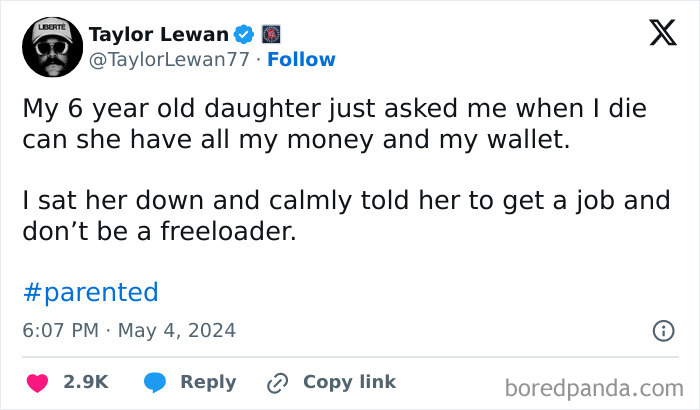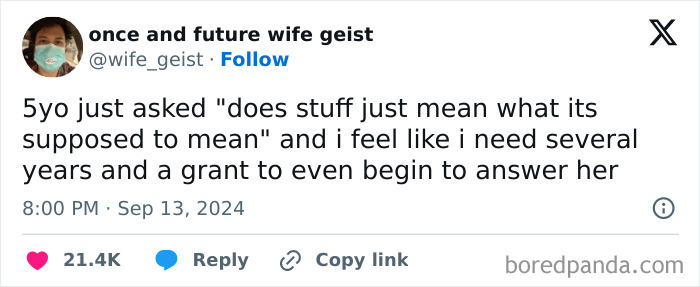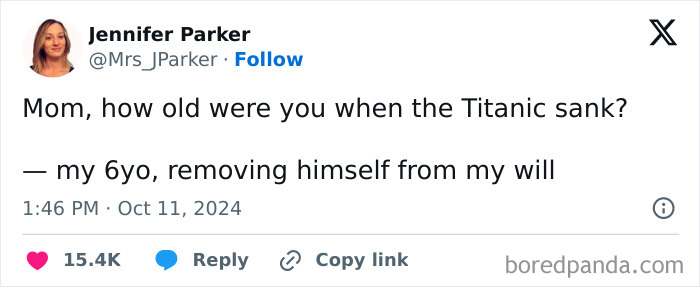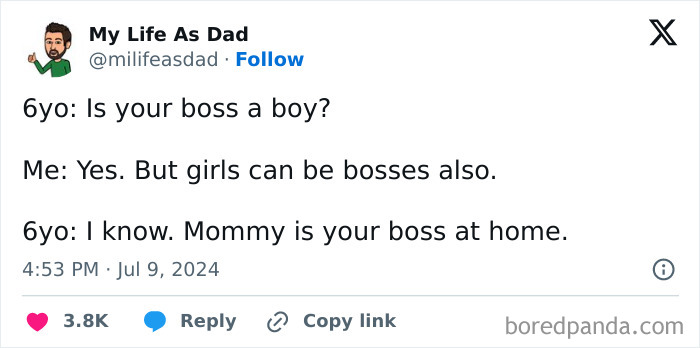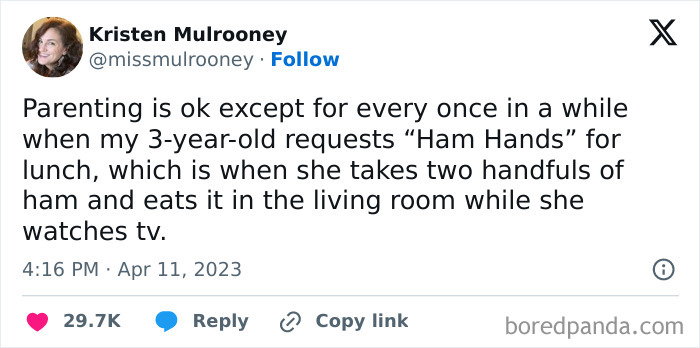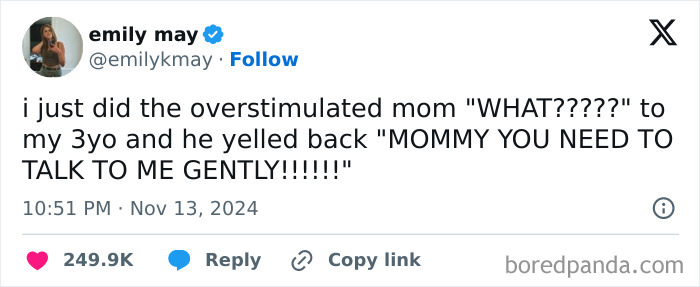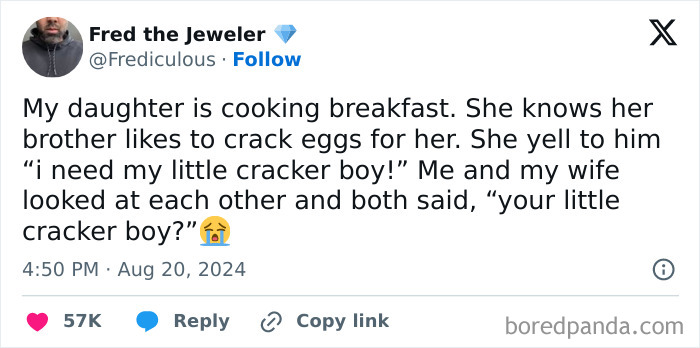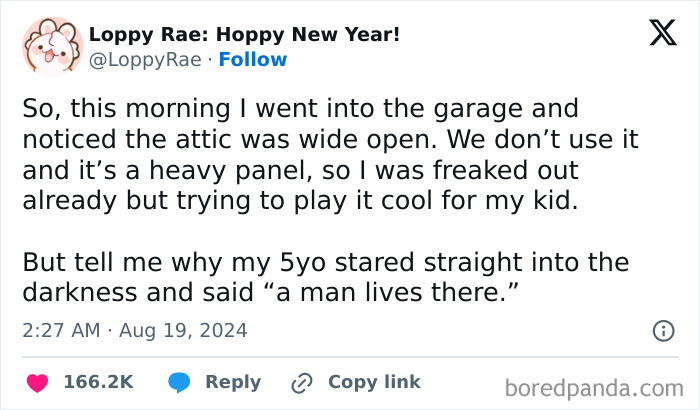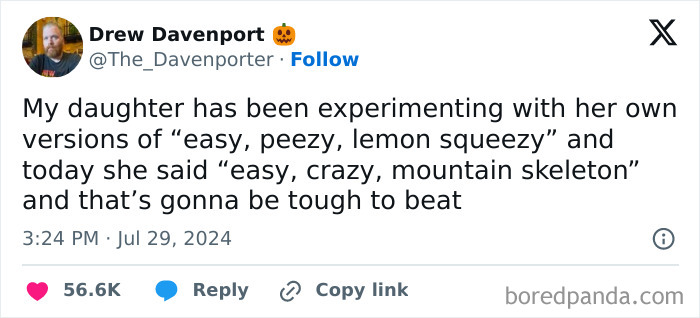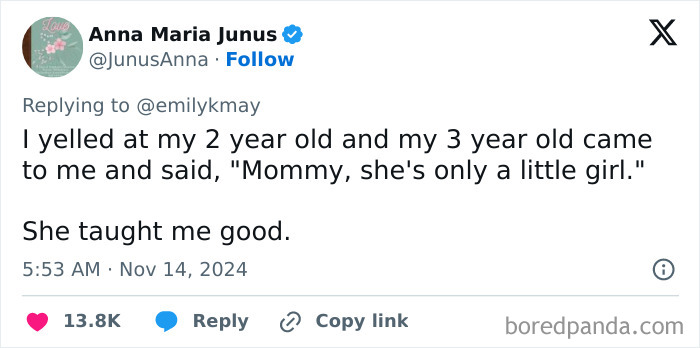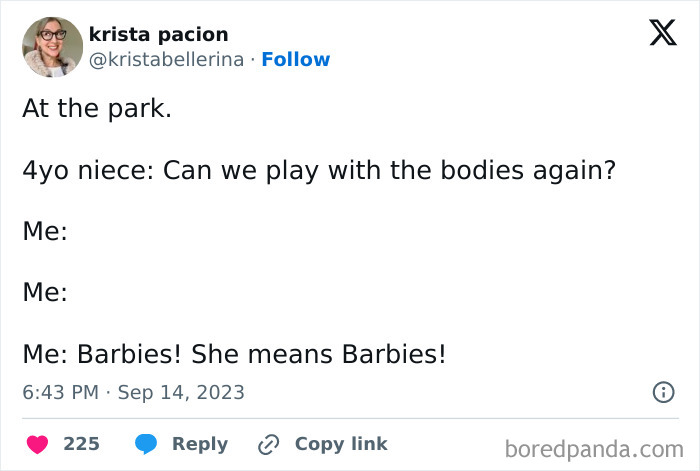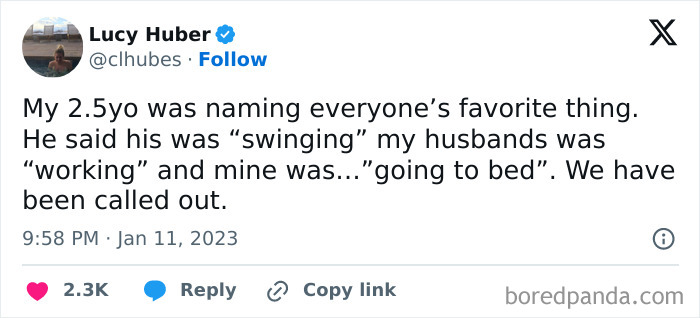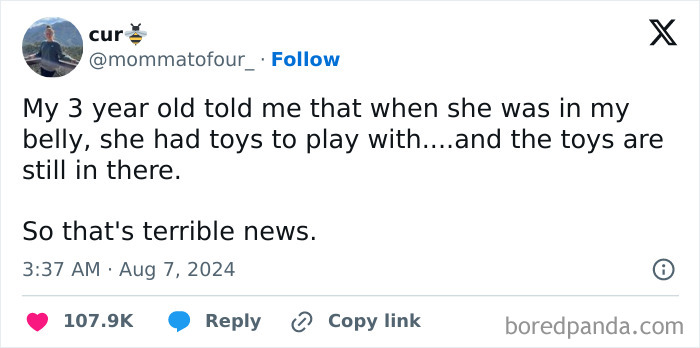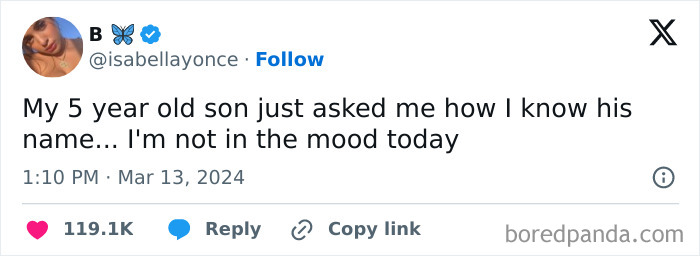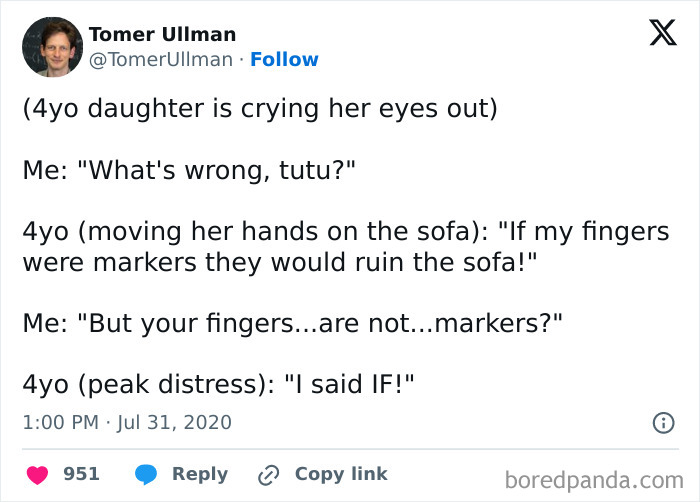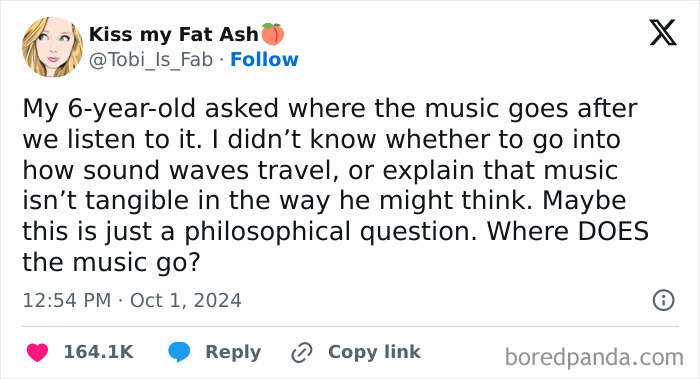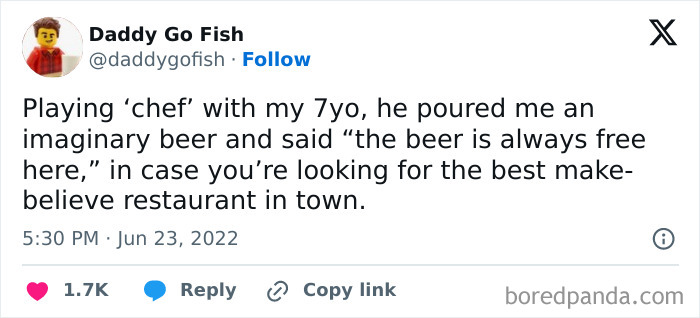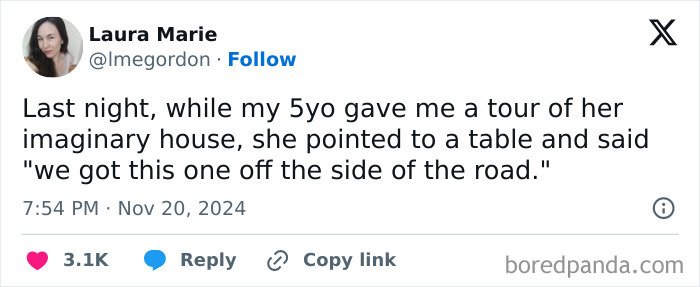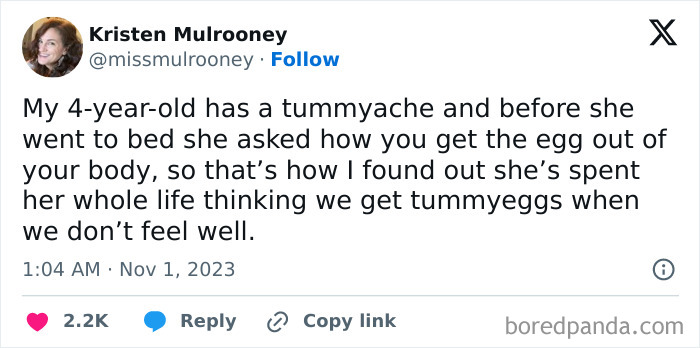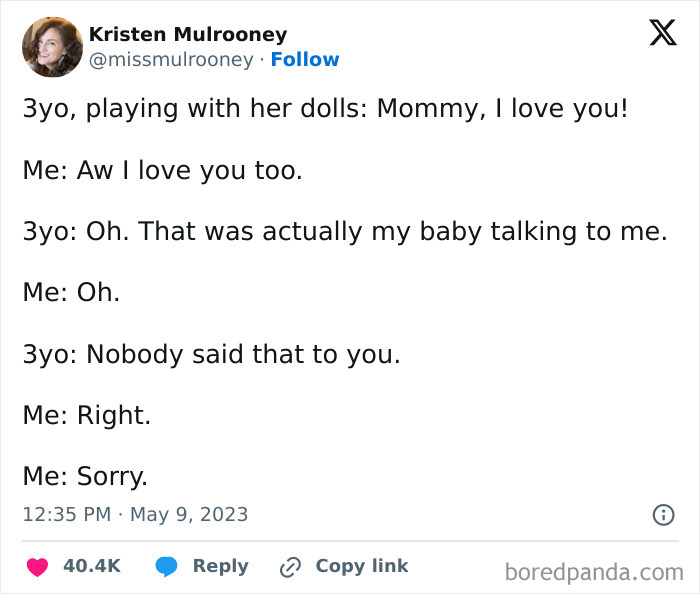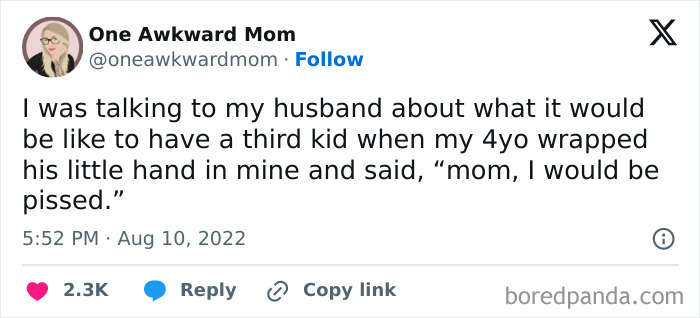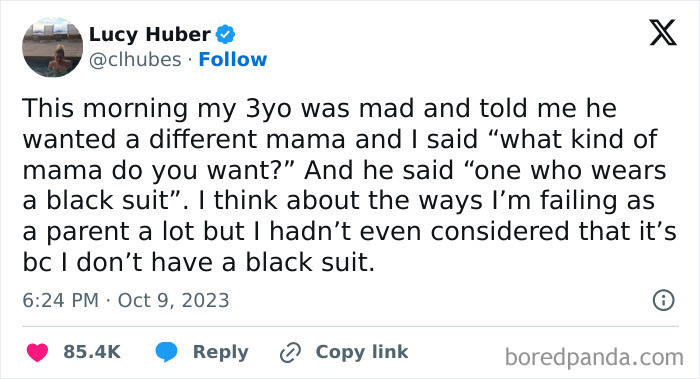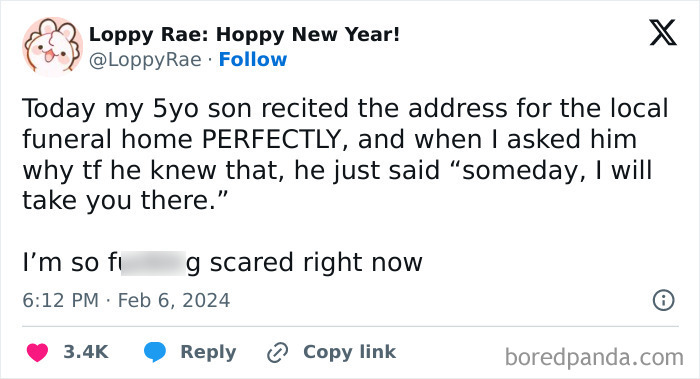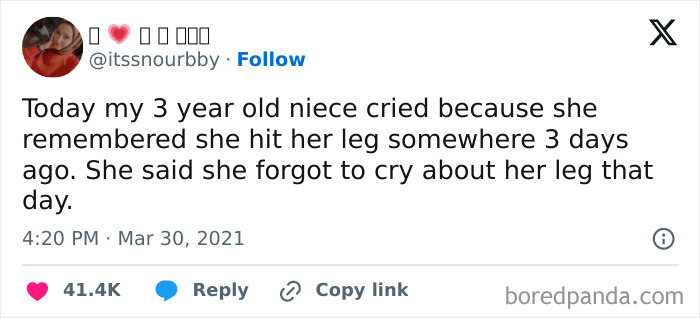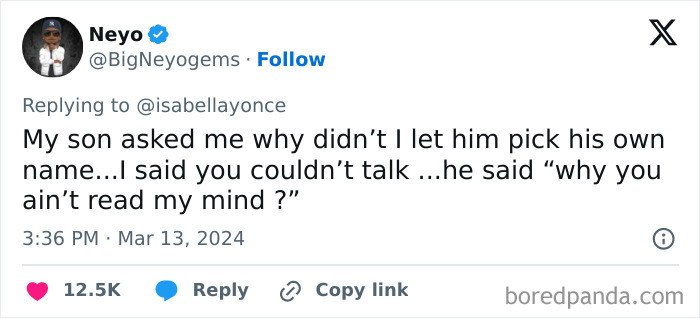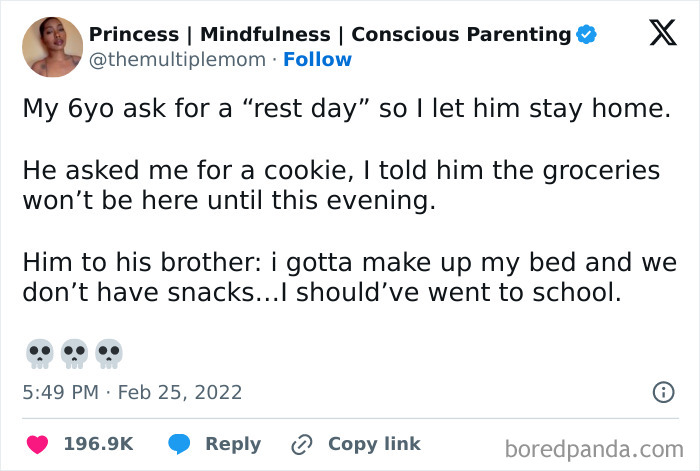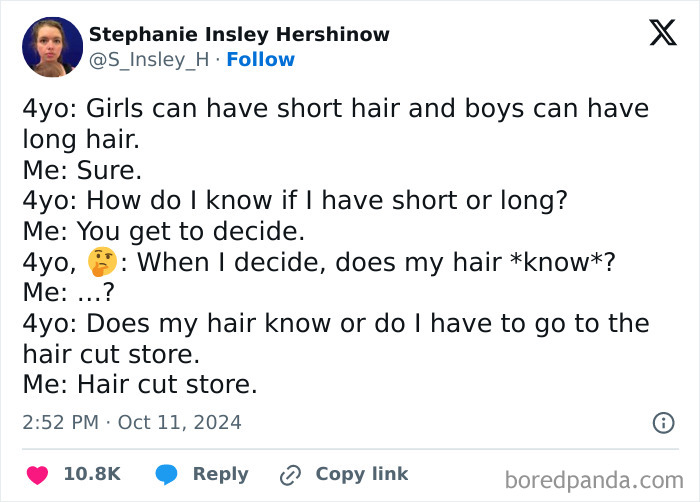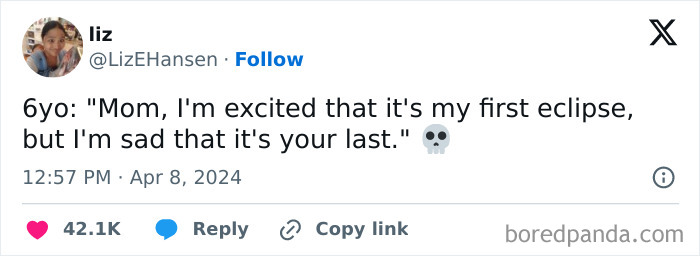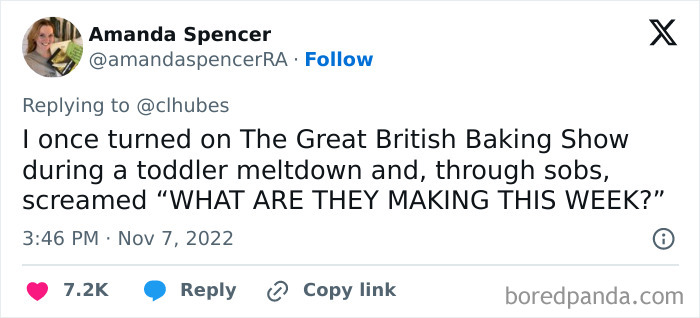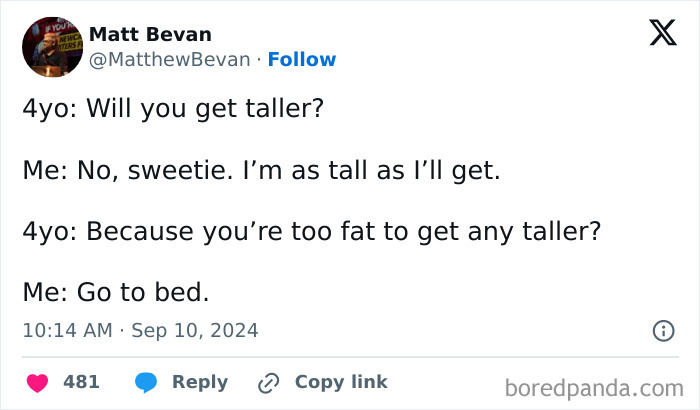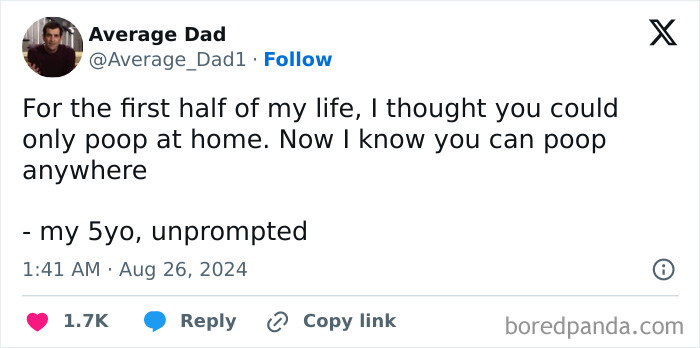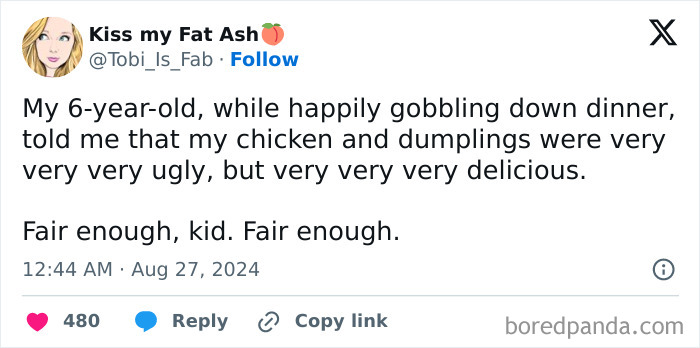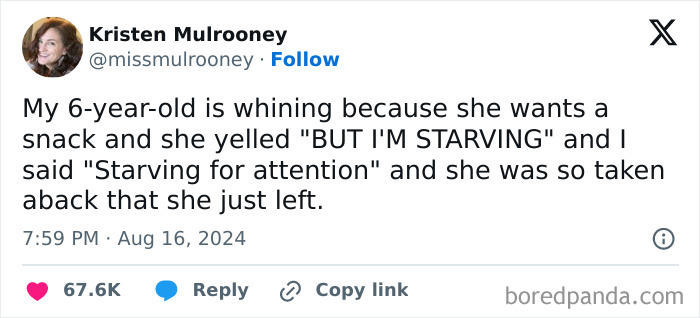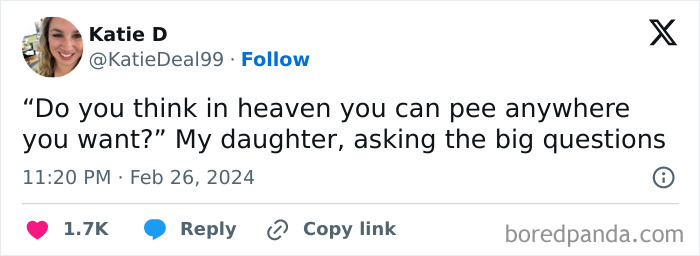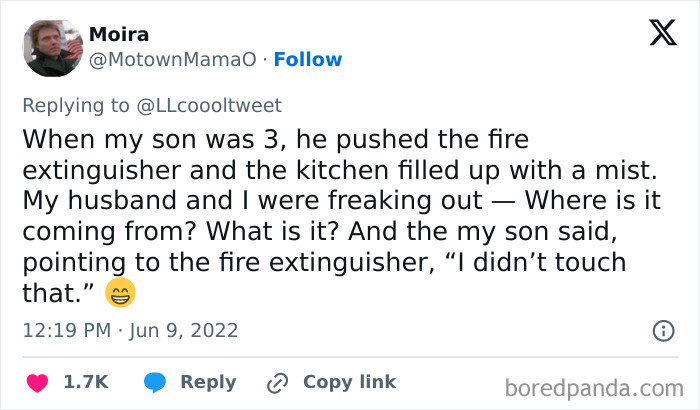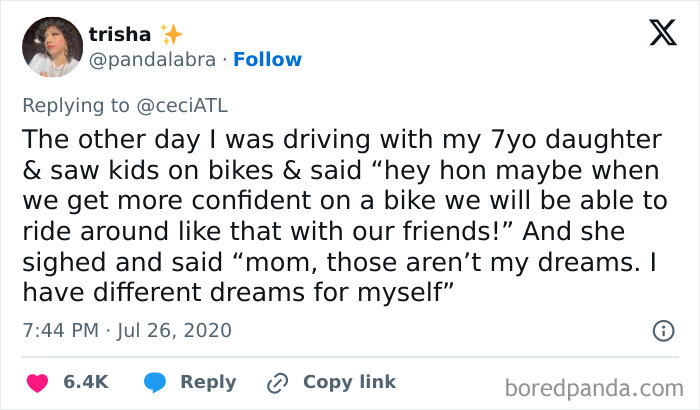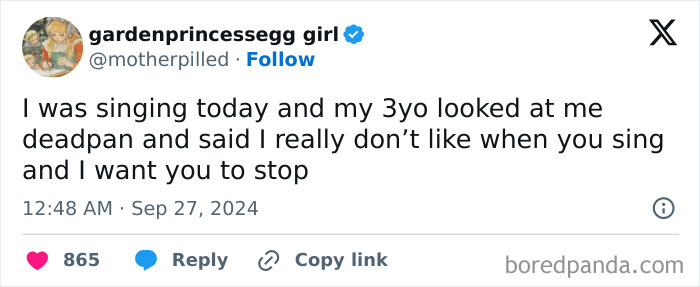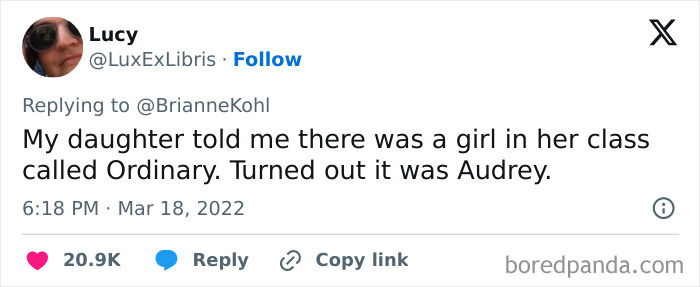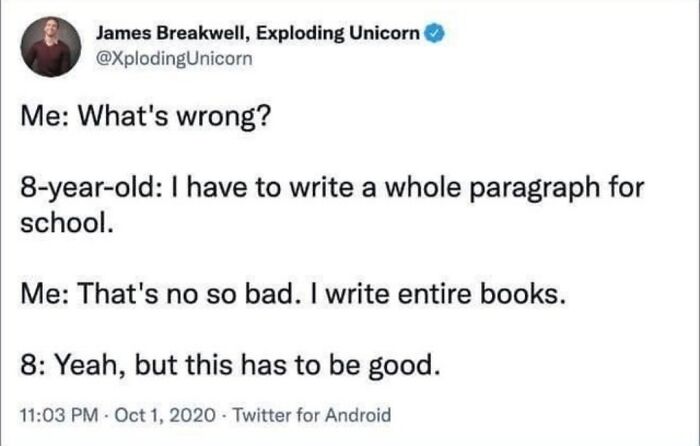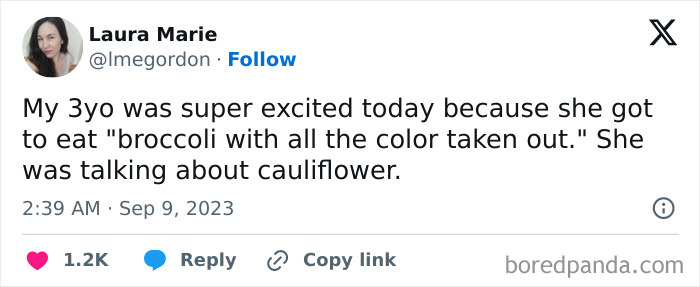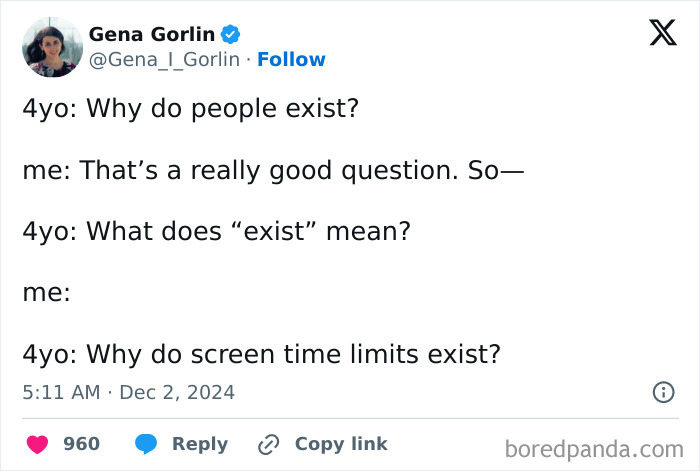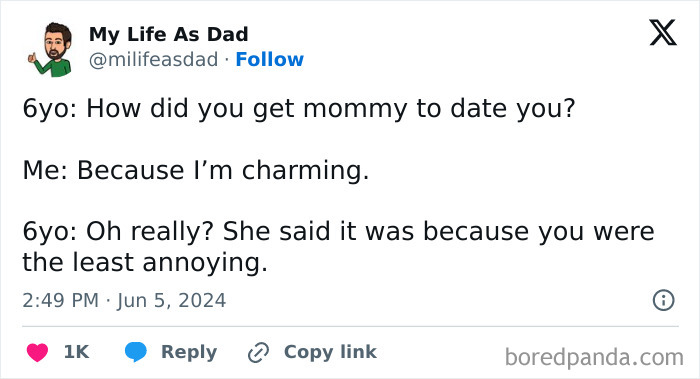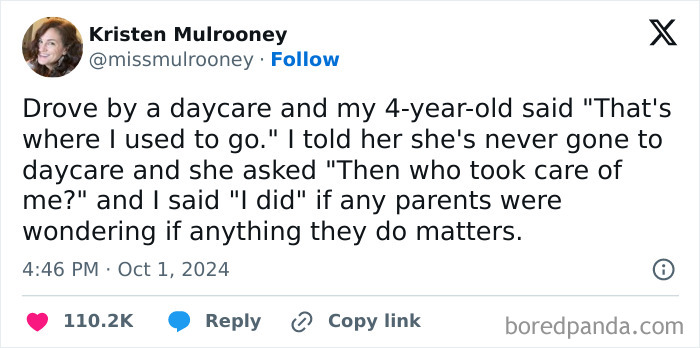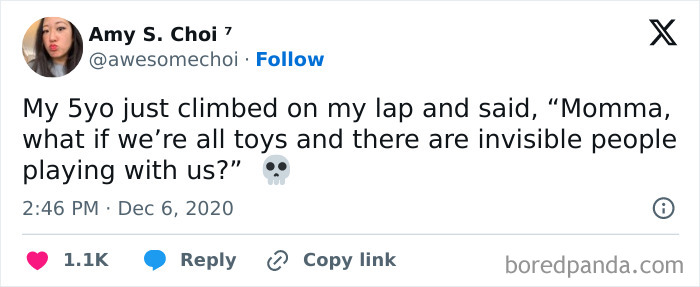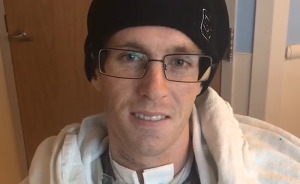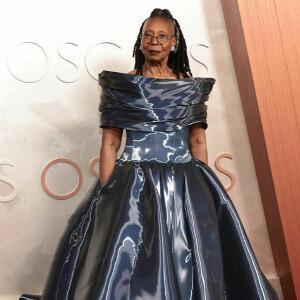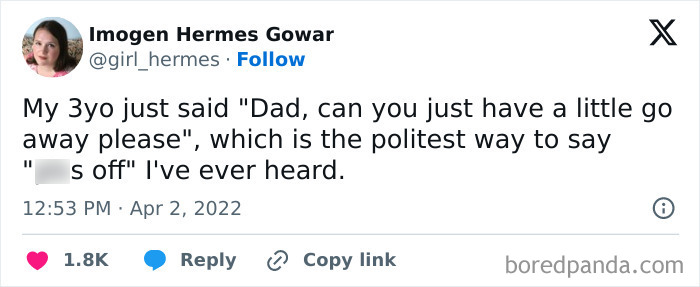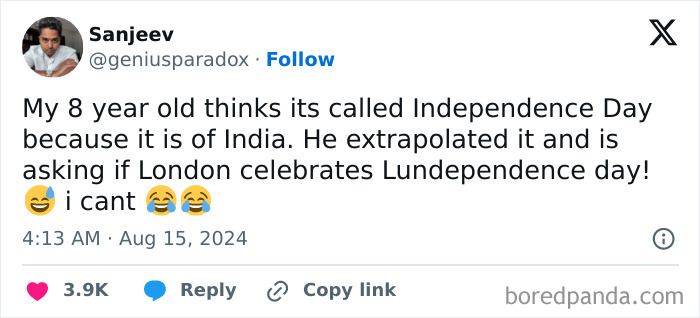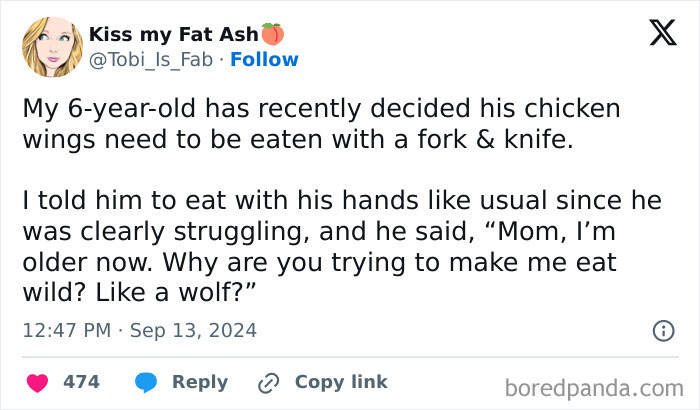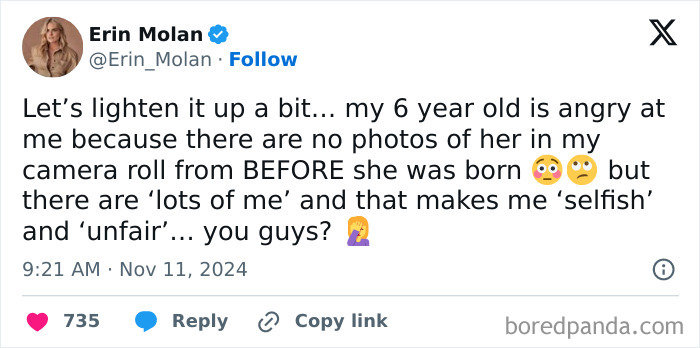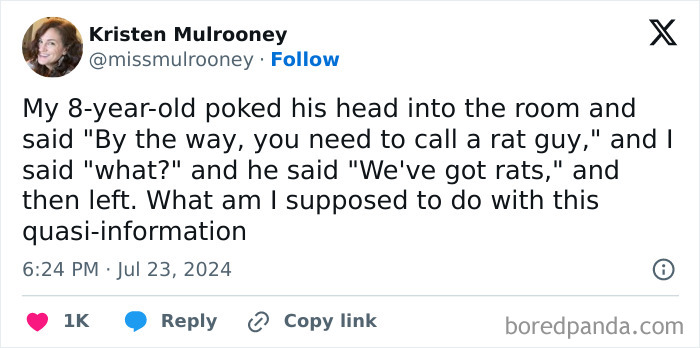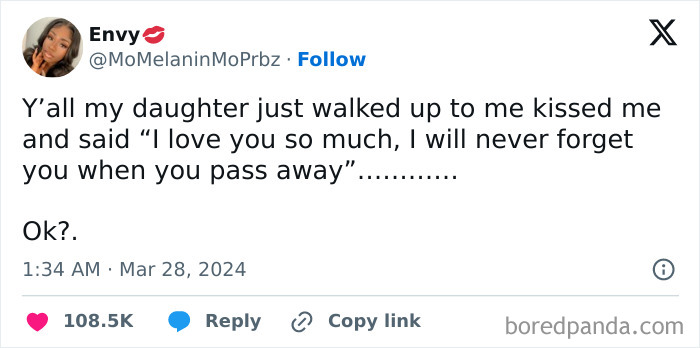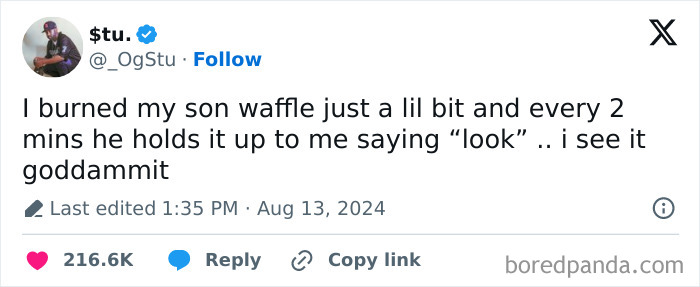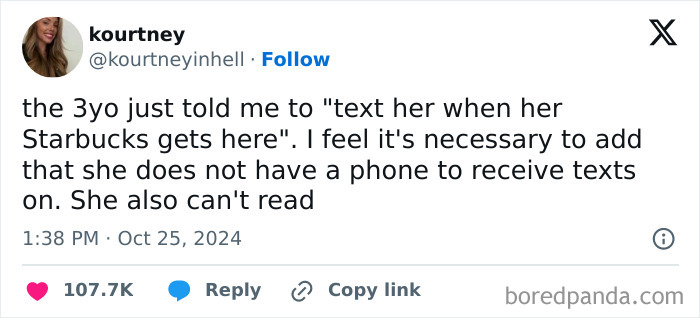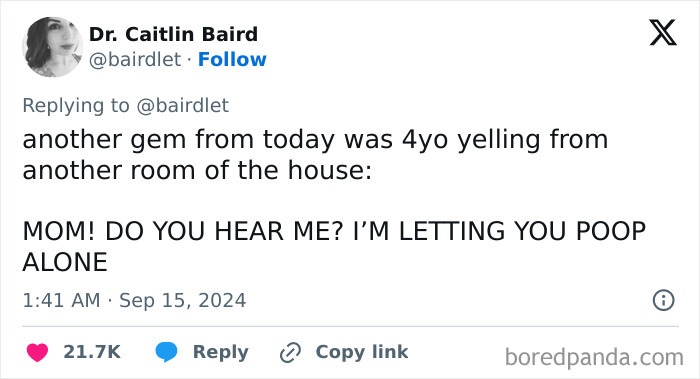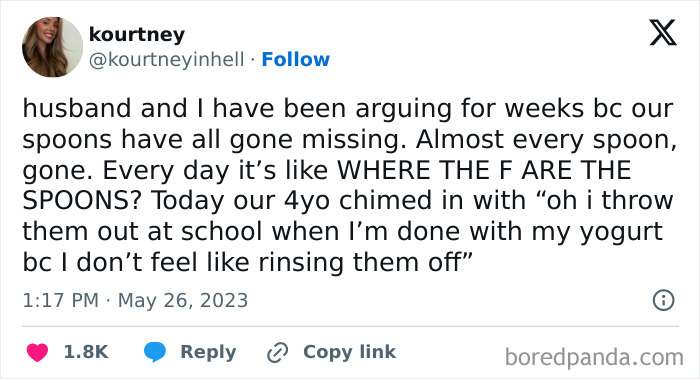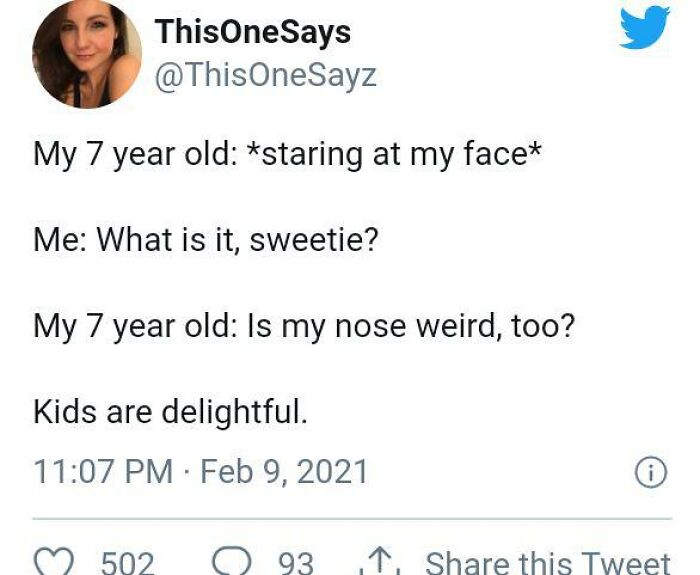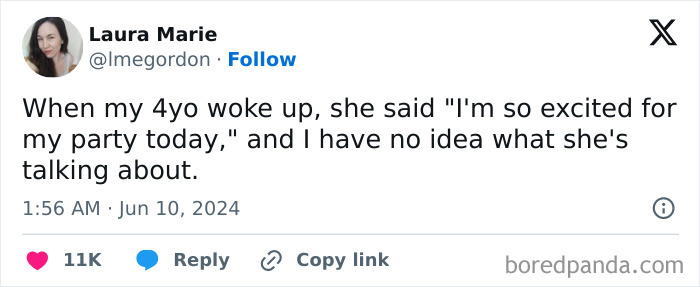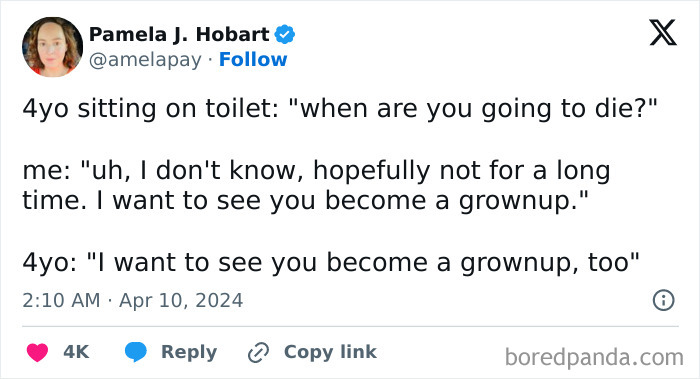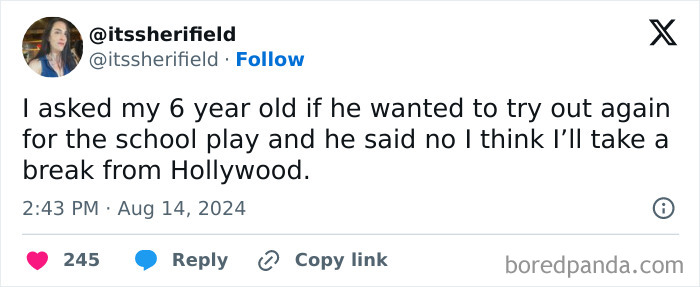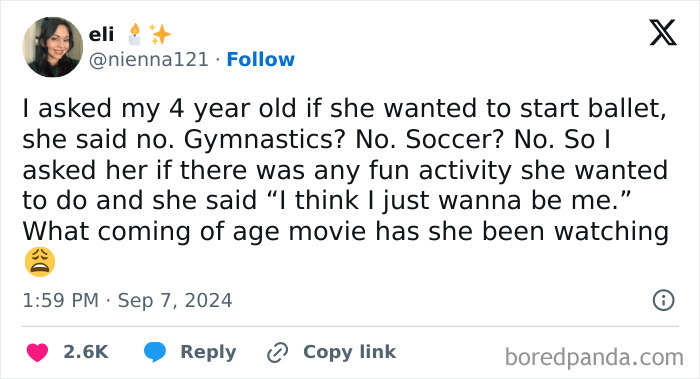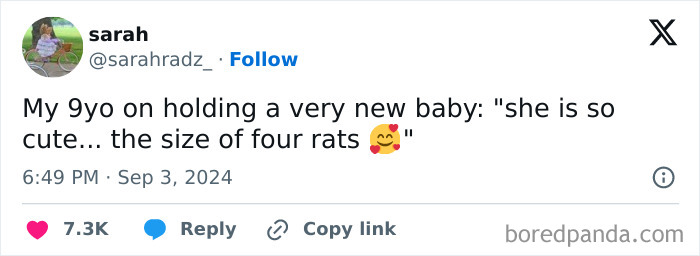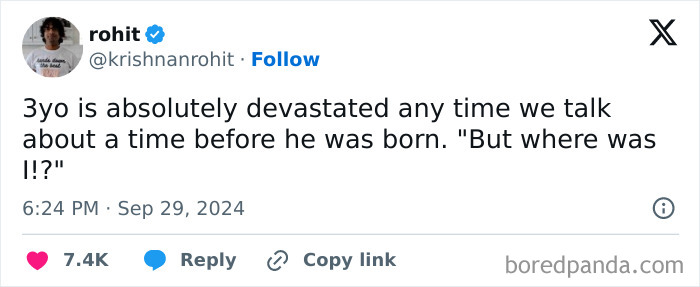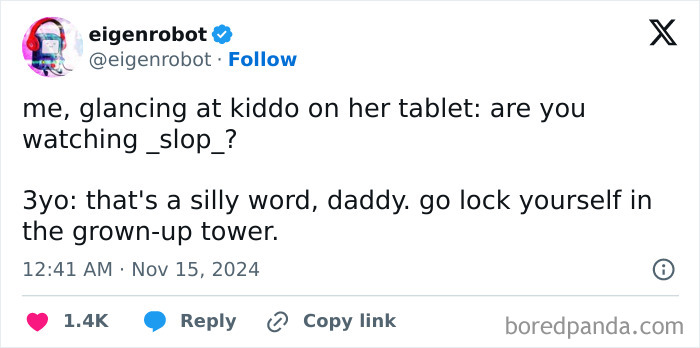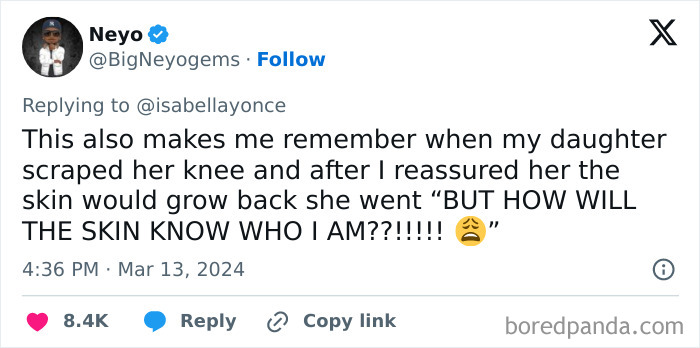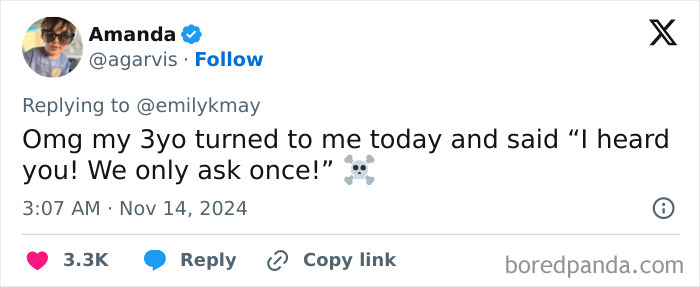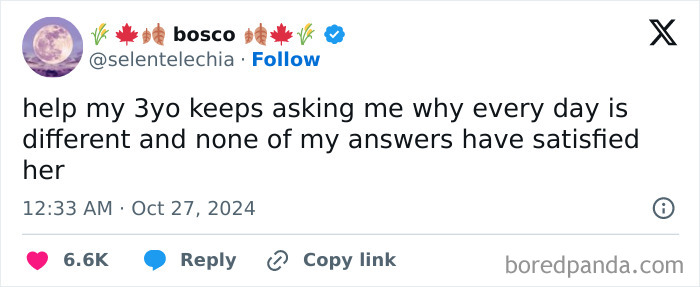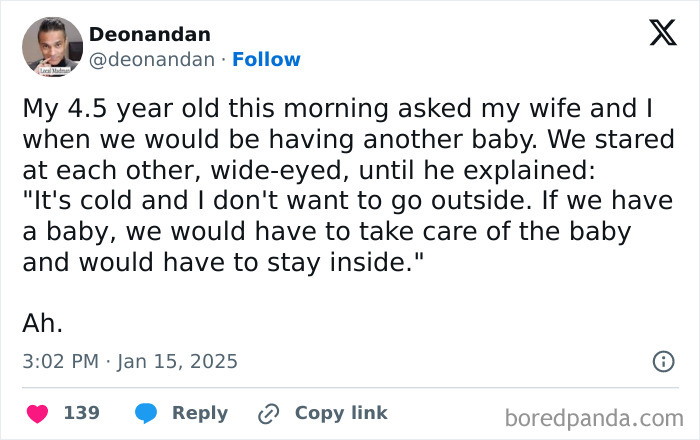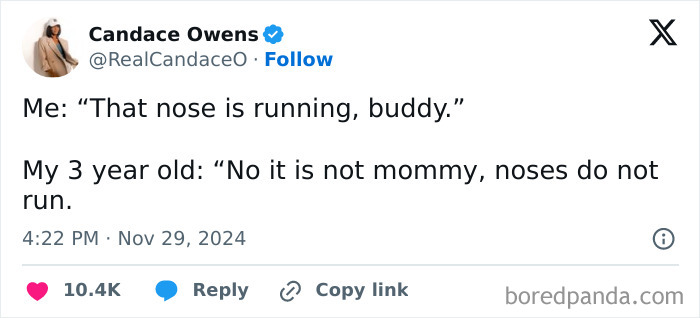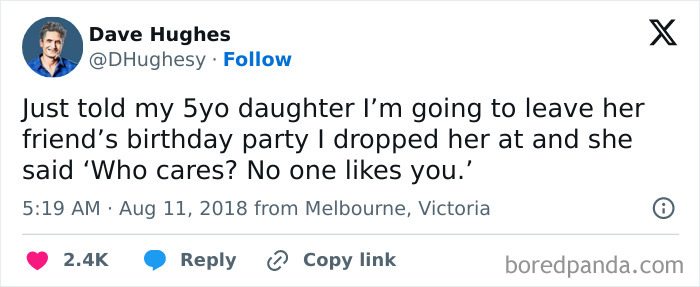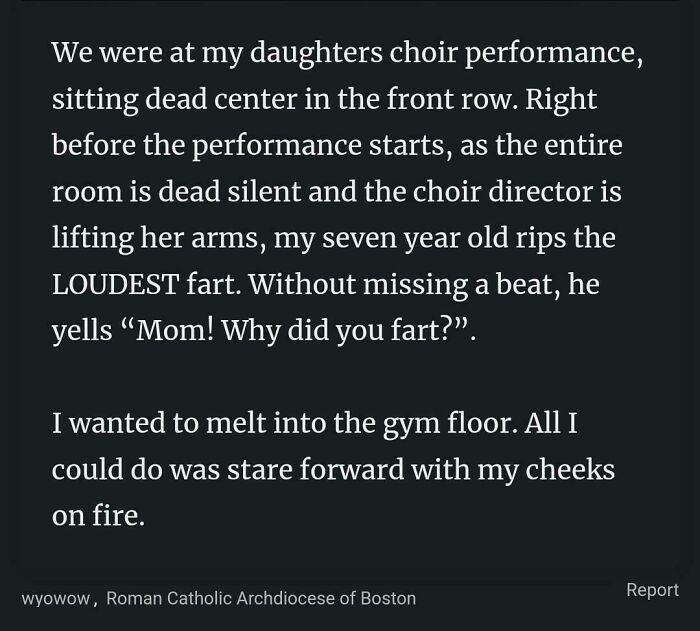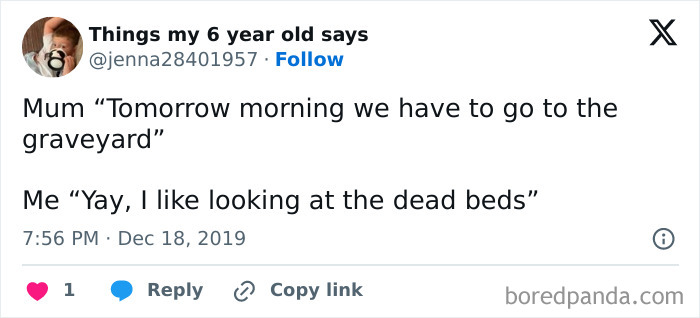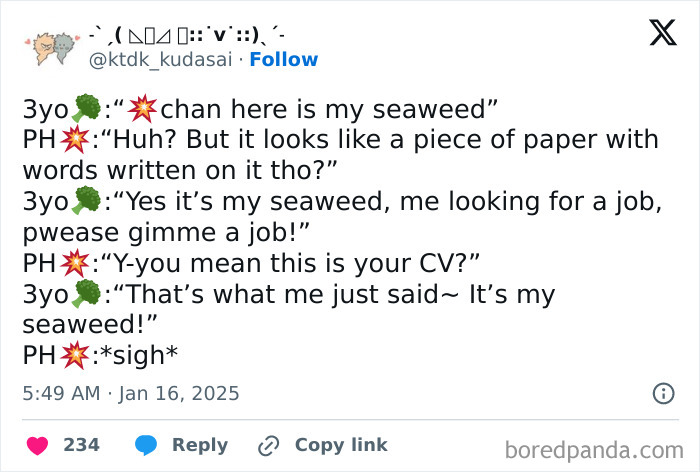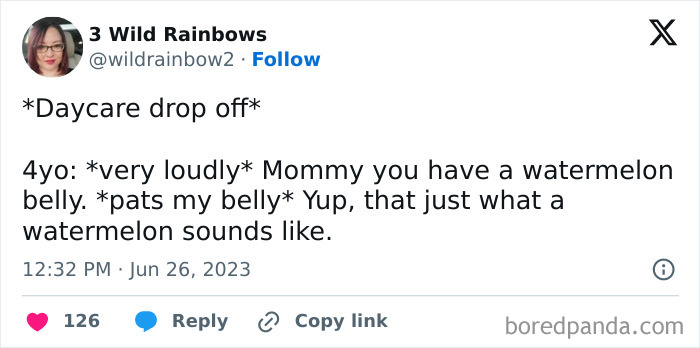
50 Hilariously Awkward Convos Between Parents And Kids That Prove That Parenting Never Gets Boring (New Pics)
You never really know where a conversation with a child will take you. Their sheer randomness, brutal honesty, and lack of filters make them say the darndest things, turning the most mundane chats into moments that stick for life. Every parent has had their fair share of silly and perhaps a bit awkward conversations with their kids, and luckily for us, they share them with all of us to laugh at. Scroll down to find a whole list of instances when children with zero filters and unlimited wisdom forced parents into hilarious talks, and don’t forget to upvote the ones that made you giggle the most.
This post may include affiliate links.
In a previous interview with Bored Panda, child psychologists Dr. Annie McNeill, Dr. Sophie Pierce, and Dr. Stephanie Nova Fields answered why kids often blurt out such funny and out-of-pocket things that this list is full of.
Fields explained that the gap between 3 and 6 years old is the prime time for kids to say funny things, mostly unintentionally.
Ha!! Knew a labor & delivery nurse who had great baby name tales, as in Justin Time.
“At these ages, they are learning about the world and about language at a rapid pace,” she said. “Their minds work hard to make sense of the world and to put things together. Their funny comments come about when they don’t get it quite right."
As the saying goes, you're usually your own toughest critic .... this poor kid has it both coming and going!
My two year old visited dad at work and she met the first black man who was from Jamaica (we live in a very Wonderbread-type city). She asked her dad how the chocolate man doesn't melt in the sun. The man laughed and laughed thankfully!
The comic element in their sentences also comes from the fact that they are at the stage of thinking where they take things at face value and don’t yet understand the underlying subtleties we adults employ in our speech or behaviors. “This can also make for some funny comments and behaviors,” Fields adds.
Reminds me of the joke: Doctor is looking at an X-Ray and says, "yep, this is exactly what I was afraid of". The man is scared and asks "what is it doc?" The doctor replies "skeletons"
Meanwhile, Dr. McNeill and Dr. Pierce assign funny things that children say to their lack of filter. “If they have a thought, you can bet they’re going to say it out loud. Part of what makes statements so funny and unexpected from children, unlike adults, is that they haven’t yet developed impulse control or the skills to filter their thoughts! Also, more than anything else, children want to make their adults happy, and they sometimes do this through funny behaviors or sayings so they can feel delighted.”
However, children aren’t usually aware that what they’re saying is funny, that is, until someone, e.g., parents, reacts to it by laughing, Dr. McNeill and Dr. Pierce say. “Children are always looking to others to make sense of who they are and the world around them. They pay attention to reactions and can feel the types of responses they are eliciting from others.”
Well I hope it's a girl dog otherwise they will not be anywhere near milk
The day we brought our son home from the hospital his 2year old sister took one look at him with an evil look on her face and yelled "I don't want IT... take IT back"
“So, while they may not always know that their responses are funny per se, they can certainly feel and enjoy the reactions they are getting!” Dr. McNeill and Dr. Pierce said. “Children who enjoy this type of attention will continue to engage in behaviors that get the same reaction or laugh from those around them.”
Interestingly enough, kids' funny talks aren’t only entertaining to others but also have developmental benefits, Dr. McNeill and Dr. Pierce said. “A crucial part of building a child’s self-esteem and sense of self is having others, especially adults, find joy in them. When children get positive attention from adults, such as laughter, it communicates to the child that they have a positive impact and that others enjoy who they are.”
Additionally, saying something funny allows kids to find their voice, learn how to express themselves, and connect to others. Their comments also give us an inside look into how children work to understand the world around them, says Fields. “I find it to be both charming and interesting. It is one of the things that makes this age so much fun for adults.”
My friend's kid once asked her how would he know if a person was a stranger if they cut off her skin and wore it - so they looked like her. That's what they get for letting him watch inappropriate movies too young!
Why were you only going 68 in a 65. Speed limits are more of a suggestion than the rule. On a 65 you need to do at least 75 just to keep up with traffic (90 in California).
This reminds me of when my 3 year old, upon learning that we sometimes call Thanksgiving "turkey day" kept--repeatedly--referring to it as chickenpox day. "Is it chickenpox day yet, mommy!??"
Baby doll, when I die you get ALL of my stuff! Have fun sorting through the junk for the stuff you might actually want! (Side bar, I actually dread when my parents die because they have SOOOO much stuff...)
As of recently, Id agree with authors who say were living in a post truth era
That is creepy. Better call the cops and have them check it out just in case.
Reminds me of when my 3yo took kool-aid in the living room after I told her not to and proceeded to spill red kool-aid on white carpet and I was mad at her. She said, "I'm cool. I'm cool like chewbacca."
Before my sister was born I used to tell my mom she should really try eating some toys so the baby wouldn't get bored in there
Into a weird part in your brain, so that sometime in the distant future you can hear a song and be transported back to a very specific time/place/feeling? My guess anyway.
well she DOES have eggs in her body and she CAN get them some of them out but we'll save that for when she's older
My son (also 3) is like this. He'll have a fabulous, wild day at kindergarten, nothing of note to report, and then three days later we'll find out that he fell off something, or someone pushed him over. He's easily distracted in the moment and only thinks about the repercussions much later!
"Groceries won't be here until this evening?" This is a whole new world.
Haha, I make a Persian dish called aash reshteh sometimes which features noodles, beans/chickpeas and a whole lot of herbs. The kids love it but it is known in the house as "that dinner that looks like muck but tastes amazing".
You don't keep peeing after you die, do you? Where's the fun in that?
Funnily enough there actually is an incredibly niche movement in the UK for London independence
You didn't notice that you weren't getting spoons back with the lunchbox? Edit: I went to parent/teacher conference and they had lost and found on the tables. I was walking out with 5 lunch boxes and one of the admins stopped me and told me that I couldn't just take things, it was lost and found. I then proceeded to open each lunch box which had my daughter's name on it... So I guess if you have multiple kids it can get chaotic...my bad.
My daughter is a natural dancer - she has such rhythm and body isolations, it's nuts. (I used to dance, and my friend who still does noticed that she was a natural.) When I gently suggested she might like to try lessons she said "I don't want anyone telling me how to move my body - I just want to do what I feel the music make me do!"
Lol I was telling my cousin about my post-surgery raspy voice and said I sounded like Barry White. Her 9 yr old pipes up "I think you mean Betty White?" We had a good time looking up ol' Barry and listening to some of his songs.
Bro, I was a precocious kid with a very forward thinking mom. At two, I asked where babies came from. She was very honest, and explained the biology. When asked by a playground mom how she taught me, she called me over to explain. "When a man and woman love eacother, they have sex." Cue a very graphic and accurate explanation... ended with "then the baby pops out the a**s!" I cannot imagine the holes my mom wanted to dig for herself.
(NewPics) with an image of two posts that have been on here at least a half dozen times.
I've said it before and I'll say it again: some people haven't seen all the posts you've seen.
Load More Replies...Lol I was telling my cousin about my post-surgery raspy voice and said I sounded like Barry White. Her 9 yr old pipes up "I think you mean Betty White?" We had a good time looking up ol' Barry and listening to some of his songs.
Bro, I was a precocious kid with a very forward thinking mom. At two, I asked where babies came from. She was very honest, and explained the biology. When asked by a playground mom how she taught me, she called me over to explain. "When a man and woman love eacother, they have sex." Cue a very graphic and accurate explanation... ended with "then the baby pops out the a**s!" I cannot imagine the holes my mom wanted to dig for herself.
(NewPics) with an image of two posts that have been on here at least a half dozen times.
I've said it before and I'll say it again: some people haven't seen all the posts you've seen.
Load More Replies...
 Dark Mode
Dark Mode 

 No fees, cancel anytime
No fees, cancel anytime 


